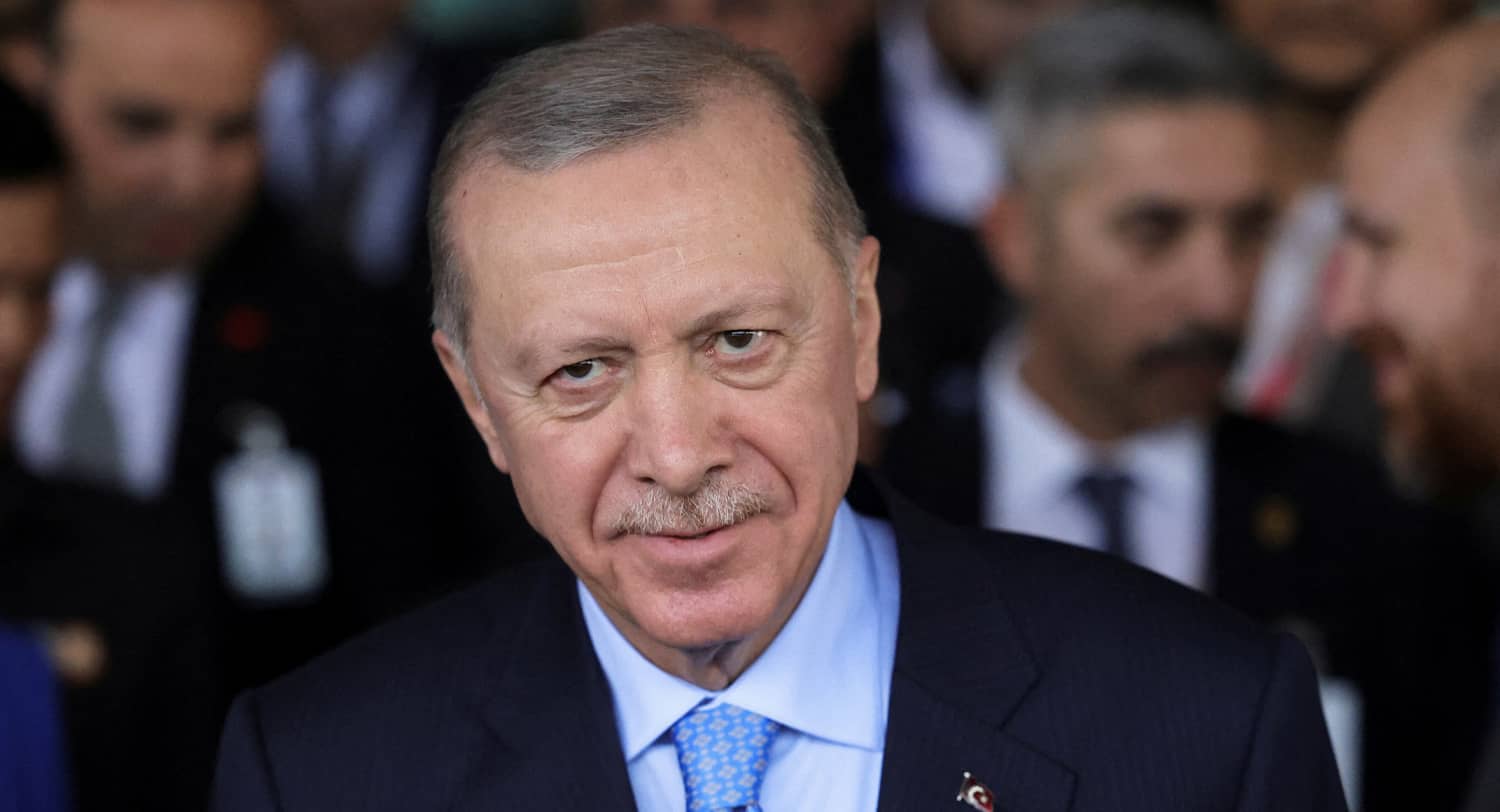When Israel struck Iran on June 13, Turkish President Recep Tayyip Erdoğan waited several hours before issuing a fiery rebuke, accusing Israeli Prime Minister Benjamin Netanyahu “and his massacre network” of “setting [the] entire region on fire.”
At the same time, Ankara must have quietly welcomed the attacks against its regional rival in Tehran. Turkey has benefitted from Israel’s ongoing degradation of Iranian influence throughout the region.
Carpe Diem for Turkey
Erdoğan sees Iran’s misfortunes as opportunities. This is most visible in Syria. With Iran-backed Asad deposed, Ankara has become a major backer of the Ahmed al-Shara’a regime, intending to use Syria to project Turkish power throughout the Middle East. Ankara has begun to solidify its economic grip on Syria, securing major infrastructure construction projects. It also seeks to complement its existing military presence inside Syria (some 20,000 troops), by training and equipping the new Syrian military, and has emphatically declared that it has no intentions of leaving Syria anytime soon.
From the perspective of Israel, Turkey seeks both to displace Iran and to weaken Israel’s position in the region. After the Asad regime fell, Israel destroyed several Syrian military airbases in which Ankara intended to station its F-16 fighter jets, close to Israeli military positions.
In the eastern Mediterranean, Erdoğan’s “Blue Homeland” (mavi vatan) doctrine calls for aggressive use of the Turkish navy to assert sovereignty in disputed areas of the Aegean. Turkish vessels routinely challenge Greek and Cypriot ones, even in their own exclusive economic zones. Greek and Cypriot complaints are largely ignored by the EU and NATO, which see Turkey as a major troop contributor in facing Russian threats, and as a potential mediator between Russia and Ukraine.
Ankara’s Vulnerabilities
Turkey’s military strategists are aware that they share a key Iranian vulnerability highlighted by Israel’s precision strikes: Turkey sorely lacks air defense capability. One Turkish defense analyst now recommends that Turkey puts “all [its] money on…Iron Dome, Kaan-Hurjet [Turkey’s own fighter jet], air-to-air missiles and ballistic-cruise missile programs. We will struggle for 10 years, but it is better than falling into Iran’s situation.”
A second vulnerability is economic. Turkey is well integrated into global trade and financial networks, creating both an engine of growth but also a dependency on short-term capital inflows. Disruptions caused by perceptions of instability could trigger lack of investor confidence and a cut-off of new lending to Turkey. Erdoğan’s economic dependence is well understood in foreign capitals, and both Presidents Trump and Putin have effectively threatened this card in prior disagreements with him.
The Short-Term Issue: F-35
The Israel-Iran conflict will likely motivate Ankara to redouble its efforts to be readmitted into the F-35 stealth strike fighter program. Ankara renewed this effort after Trump assumed office in January 2025. Erdoğan is seeking a White House meeting with Trump, where he will likely tell Trump that a large NATO power like Turkey needs a formidable air force, equipped with the F-35. Only with such a capability can Turkey ensure sustained peace and stability in Syria and protect a potential ceasefire between Ukraine and Russia, likely Erdoğan talking points supporting this ask.
At present, Turkey’s air defense capabilities consist mainly of a fleet of aging F-16’s and an inactive S-400 surface to air missile defense system purchased from Russia in 2019. It was Turkey’s acquisition of this Russian weapon – against repeated US warnings – that resulted in Turkey’s removal from the F-35 program and sanctions by the US under provisions of the Countering of America’s Adversaries through Sanctions Act.
Turkish acquisition of F-35 jets would cause serious concerns with US allies Greece and Israel, given Turkey’s hostile behavior towards them. For Israel, providing Ankara with the F-35 could be seen as violating the US pledge of ensuring Israel’s regional “qualitative military edge” in advanced technology.
Turkish access to the F-35 raises several technological concerns. If Turkey were to activate the S-400 system after getting the F-35, the missile platform would be able to collect sensitive stealth information on the F-35 and transfer it to the Russian military. In addition, Turkish engineers could reverse engineer parts of the F-35 for their technology. Turkish defense contractors have developed their own fifth generation fighter jet: the “Kaan” which is still in testing. Engineers are seeking to develop an indigenous engine, which the Kaan lacks. If components of the F-35 are reverse engineered by Turkey, the greater risk is that their blueprints are subsequently sold and end up in the hands of our Russian and Chinese adversaries. The Pentagon counts on the F-35 to defend US national security for decades to come.
In short, Erdoğan seeks to position Turkey as a dominant power in the eastern Mediterranean and wider Middle East, in the wake of Israel’s actions against Turkey’s historic rival, Iran. But he is vulnerable on both military and economic grounds. The United States should not offer him a helping hand to achieve his regional ambitions at the expense of our closest allies.

